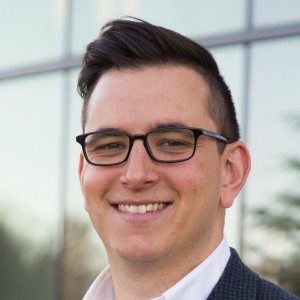Interview With Dr. Matthew Cohen of University of Delaware

Matthew Cohen, Ph.D., is an Assistant Professor in the Dept. of Communication Sciences & Disorders at the University of Delaware. He earned his Ph.D. in clinical neuropsychology from the University of Florida and completed a clinical residency at the Johns Hopkins School of Medicine, where he assessed and treated adults with acquired cognitive and communication disorders. Dr. Cohen directs the Measure What Matters Lab, which focuses on the development and clinical application of patient-reported outcomes measures for adults with cognitive and communication disorders.
Note: You should consult with your doctor or speech pathologist for recommendations on treatment. The views and opinions expressed in this article are those of Dr. Cohen and do not necessarily reflect the official policy or position of SpeechPathologyMastersPrograms.com
How did you become interested in patient reported outcome measures?
My training and experience as a clinical neuropsychologist taught me that unobservable and subjective health states are very important, despite being “in your head.” Pain and anxiety are in your head, but no one who has experienced significant pain or anxiety doubts their importance. Because it’s difficult for clinical research or practice to improve something that isn’t measurable, I became interested in patient-reported outcomes measures because they permit the formal assessment of subjective, unobservable health states.
What are some of the challenges to collecting the right outcomes data from patients?
There are a number of challenges, at multiple levels – from level of the individual through the level of the healthcare system.
Ideally, “the right outcomes” for an individual client should reflect the reasons that person sought treatment. However, because those reasons may be poorly specified or idiosyncratic, they may not be captured by a standardized outcomes measure.
At the next level, a major challenge is that the “toolbox” of outcomes measures is sparse. There are too few patient-reported outcomes measures that meet modern standards and that have the right scope – narrow enough to be sensitive to communication-related impairment, but broad enough to be applicable to communication impairment of different types and causes.
At the next level, many aspects of the healthcare system in the U.S. are not conducive to routinely collecting high quality data. It is difficult or impossible to bill specifically for outcomes assessment, so the burden is often on clinicians to “find time” for it while also juggling other priorities.
At the highest level, the healthcare field is still unsure about how to interpret patient-reported outcomes and use them to inform and evaluate treatment. The patient’s perspective is the result of complex and changing appraisal processes, which can make PROs difficult to interpret. Not enough research has been done on these appraisal processes, however, initial research suggests that these processes may be predictable and not random. Future research is needed to better understand these appraisal processes in individuals with cognitive and communication disorders and how they evolve with time and clinical change.
Some of your research focuses on the importance of having alternative ways for patients to report outcomes to make them accessible to all. How often is this overlooked?
Completing a patient-reported outcome measure is a cognitive and communicative task. It requires the individual to comprehend the question being asked, retrieve relevant information from memory, map that information onto response options, select a response option, and communicate that selection. Individuals with cognitive or communication disorders may have difficulties with one or more of those stages. At some level of impairment, an individual is unable to provide their own perspective of their health. However, I think that threshold is much higher than many researchers and clinicians assume. I read a lot of research studies in which patient-reported outcomes are not assessed because of mild cognitive problems, or even the potential for participants to have mild cognitive problems. In my opinion, this is a mistake and a disservice to those clients/participants. There are now a handful of studies to show that a live test administrator can provide communication support to an individual without significantly influencing the resulting PRO score. This is one easy solution (and there are others) that improve the equity and inclusion of people with disabilities.
How have questionnaires and other means of collecting patient reported outcome measures improved over the years?
Stakeholders and end-users (especially people with the condition) are increasingly included in the development and testing of new measures. The principles of good design, which have always existed, are increasingly expected, like clear, unambiguous wording, accessibility to individuals with low literacy levels, and translatability to other languages. Expectations of normative sample are also higher than in the past, resulting in more meaningful score interpretations. More so than in the past, modern measures use a psychometric model called item response theory, which permits the faster and more flexible administration of items, including administration by computerized adaptive test.
Are there still common flaws in data collection?
I think the biggest flaw is not assessing the patient’s perspective. Although standardized patient-reported outcomes measures are the most rigorous way of capturing the patient’s perspective, there are not standardized measures that meet every clinical need and situation. A patient-reported outcome can simply be an informal discussion with the client about their perception of the health outcome.
What aspect of your research are you most proud of?
I’m proud of how my colleagues and I continually solicit feedback from the people we hope to serve – people with communication impairment and speech-language pathologists who need better measurement tools. I am not a speech-language pathologist (SLP), and I’m careful not to assume I understand their needs and perspectives.
What is your advice for speech-language pathology graduate students?
Professionally, I would advise to students to take a hypothesis-testing approach to their clinical work. This involves generating an informed hypothesis (e.g., what factors cause, maintain, or moderate a condition), formulating a treatment approach based on that hypothesis, and collecting data (broadly defined, including observational and interview data) to test the hypotheses. This scientific way of thinking elevates the rigor of the clinical approach and naturally leads to evidence-based practice.
Personally, I would advise students who are able to, to be laser-focused on getting out of debt as soon as possible. Talking about personal finance is awkward, but being wise and intentional with money is one of the best things a person can do to achieve their goals. Many students graduate in their mid-20s and are used to working hard and “living small.” While new graduates should absolutely enjoy their first paycheck and other fruits of their labor, continuing the lifestyle they’re used to – like working extra hours and living small – can help pay off debt before other milestones like weddings, mortgages, and kids. There are a handful of personal finance philosophies/programs that students/graduates might benefit from. One that my wife and I use is called Financial Peace.
Sponsored online speech pathology programs

Online MS: Pursue SLP Certification. Study FT/PT
Speech@Emerson enables you to earn an MS online and pursue SLP certification in as few as 20 mos. Learn the same curriculum as the on-campus program. Study FT or PT.
- Prepares you to pursue certification as an SLP generalist
- In-person clinical placements at faculty-approved partner sites
- As few as 20 months to complete
SPONSORED

Want to Become an SLP? Earn an MS Online at NYU
NYU Steinhardt’s online master of science program in Communicative Sciences and Disorders prepares aspiring speech-language pathologists with a comprehensive professional education.
- Prepares students to pursue SLP licensure
- Accredited by ASHA’s Council on Academic Accreditation
- As few as six terms to complete
- Full-time and part-time plans of study
SPONSORED

Online MS in Speech-Language Pathology from Pepperdine University
Pepperdine University’s online Master of Science in Speech-Language Pathology program combines a robust, innovative curriculum rooted in Christian values with a full-time or part-time option that features online learning, on-campus intensive experiences, and comprehensive clinical field practicums to prepare skilled, compassionate students for careers as speech-language pathologists.
- Full-time (five trimesters) or part-time (eight trimesters) options available.
- No GRE scores required.
- 400+ supervised, clinical learning hours are done at schools/clinics local to students
- Three onsite experiences build a sense of camaraderie and community throughout the program
SPONSORED

